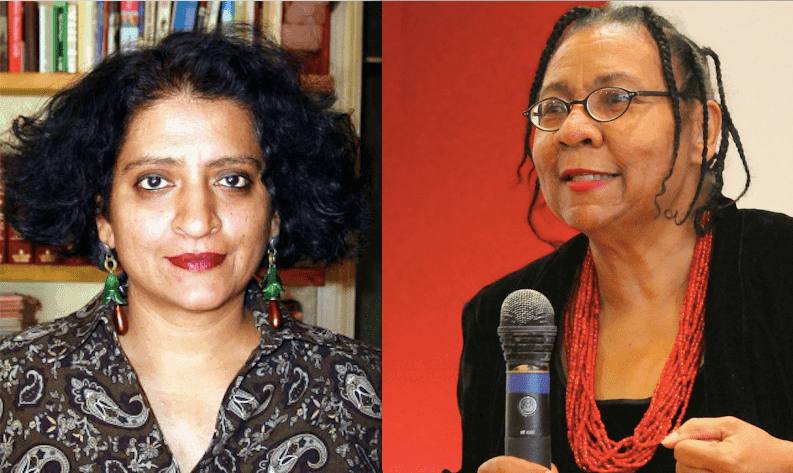Filosofisk fredagsseminar, 6. april 2018

Semesterets tredje Filosofisk fredagsseminar vil bli holdt av Oda Davanger, tidligere redaktør for Filosofisk supplement, og snart uteksaminert Master i filosofi fra IFIKK (UiO). Temaet for foredraget er etnosentrisme og feminisme. Seminaret vil bestå av et foredrag på omtrent en time, etterfulgt av en pause på et kvarter, og avsluttes med en spørsmålsrunde på 30 minutter.
Abstract: I analyze bell hooks and Uma Narayan’s feminist critiques of mainstream feminism as a political project. In my view, their charge is that feminism is ethno-/Eurocentric. This charge may be analyzed in two forms: (1) the philosophical charge, as feminism is based on Western philosophy and will therefore favor white (Ango-American), middle-class women; and (2) the political charge, where feminist politics tend to favor white (Anglo-American), middle-class women and reinforce elements of slavery and colonialism. These charges prevent feminism from achieving solidarity and sisterhood with all women. The two charges can be analyzed by referring to Audre Lorde’s famous metaphor on how the master’s tools will never dismantle the master’s house. In other words, tools that are derived from Western philosophy, such as reason, objectivity and equality, may not provide feminism with long-term solutions to the problem of patriarchy. One of the reasons for this, pointed out by hooks and Narayan, is that sexism is inextricably, structurally, and ontologically linked to racism and colonialism. Therefore, if feminism only aims to tackle issues related strictly to gender, and not to race or postcolonialism, it will not only run the risk of working in contradictory terms but also risk supporting the very structure it works to dismantle. Several solutions to ethnocentrism in feminism have been proposed, and attempted. These include identity politics, intersectionality, and race-blind rights discourse. These solutions all have problems because they end up essentializing identity in the same way that makes possible the very patriarchal oppression they resist. Feminist poststructuralism offers a way to think about subjectivity and difference that differs from these solutions, but this framework is also risky. Poststructuralism’s notion of ‘radical change’ may end up forfeiting the existing rights and formal equalities that women have fought so hard for. Any solution to feminism’s ethnocentric charges must therefore include an understanding of history, power imbalances, and political reality, while simultaneously attempting to overcome these without resorting to tools that ultimately reinforce them.
Tid: 6. april 2018, kl. 18.15-20 Sted: Seminarrom 219, Georg Morgenstiernes hus Tittel: Feminism's Ethnocentric Problem: The Risk of Reproducing Oppression Foredagsholder: Oda Davanger, Master-student i filosofi ved IFIKK (UiO)
Alle interesserte er velkomne.